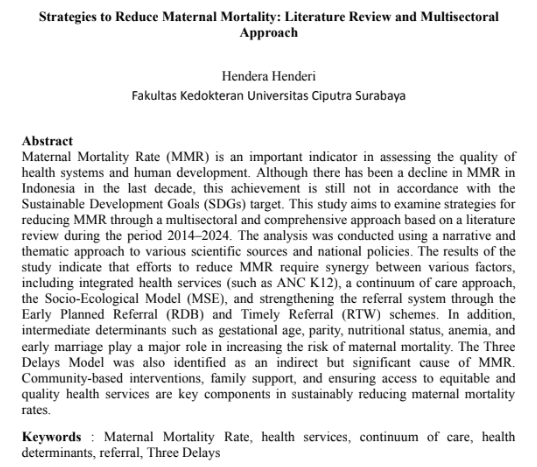Strategies to Reduce Maternal Mortality: Literature Review and Multisectoral
Abstract
Maternal Mortality Rate (MMR) is an important indicator in assessing the quality of health systems and human development. Although there has been a decline in MMR in Indonesia in the last decade, this achievement is still not in accordance with the Sustainable Development Goals (SDGs) target. This study aims to examine strategies for reducing MMR through a multisectoral and comprehensive approach based on a literature review during the period 2014–2024. The analysis was conducted using a narrative and thematic approach to various scientific sources and national policies. The results of the study indicate that efforts to reduce MMR require synergy between various factors, including integrated health services (such as ANC K12), a continuum of care approach, the Socio-Ecological Model (MSE), and strengthening the referral system through the Early Planned Referral (RDB) and Timely Referral (RTW) schemes. In addition, intermediate determinants such as gestational age, parity, nutritional status, anemia, and early marriage play a major role in increasing the risk of maternal mortality. The Three Delays Model was also identified as an indirect but significant cause of MMR. Community-based interventions, family support, and ensuring access to equitable and quality health services are key components in sustainably reducing maternal mortality rates.

